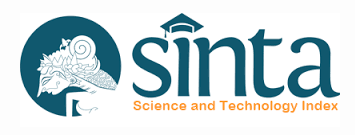ANALISIS DAMPAK SOSIAL KEMAJUAN PEMBANGUNAN RUMAH KOS SEKITAR KAMPUS UIN ALAUDDIN MAKASSAR DI KELURAHANROMANG POLONG KECAMATAN SOMBA OPU KABUPATEN GOWA
Abstract
This research examines the social impact of boarding house headway around the State Islamic University of Alauddin Makassar in Gowa Regency. The focus of this research is to elucidate the three questions which are 1) How the portrait of students’ life in boarding house around the State Islamic University of Alauddin Makassar in Gowa regency. 2) How the social impact of boarding house headway around the University. 3) How the solution to overcome the social impact of boarding house headway around the University in Gowa Regency.
The qualitative descriptive is the method applied in this research. The main instrument is the researcher with all media used in research. The primer and secunder are the resources. Observation, interview, and documentation are the ways to collect the data. Descriptive data analysis is by prolonging the participation and observation, collecting data, and verifying the validity data continously.
The outcome of this research can be concluded as following: 1) It is found three types of students, namely the first type is students who really want to study and spend time for college; second type isa half-focus in college means students in a half-way to college; The third type is students who are ignorant and indifferent clarify that student who are really no willingness to learn. 2) It is found some of the social impacts of the progress of boardinghouses around the campus are the problem of free sex that lead to free sex, garbage problem that resultfrom boarding houses, slum settlement problem that is caused by private homes convert to boarding house which result slums settlement, noisy problem that can disturb the peace and comfort of the local community. 3) It is noticed that several solutions to overcome the social impacts of the boarding house headway are firstly to rearrange the boarding house and supervise the owner properly. Secondly, it requires the involvement of local authorities and police officers in controlling, supervising and even curbing if it is necessary. The last, the involvement of religious leaders, community leaders, and campus parties are needed to conduct guidance and awareness to students directly or indirectly.
References
Abdulsyani, 2002.Sosiologi Skematika, Teori, dan Terapa. Jakarta: Bumi Aksara
Agung, I Gusti Ngurah, 1992. Metode Penelitian Sosial, Pengertian dan Pemakaian Praktis. Jakarta: Gramedia Pustaka Utama
Aibdi, Raahmat,2007. Kesehataan dalam Perspektif Al-Quran, Yogyakarta: Pustaka Pelajar
Azwer. 1998. Teori Sikap Manusia dan Pengukurannya. Yogyakarta: Libert
Barda Nawawi Arif, 2005. Pembahruan Hukum Pidana dalam Perspektif
Perbandingan, Bandung. Citra Aditya Bakti.
Bodgan, Robert dan Steven J. Taylor. 1993. Penelitian Kualitatif. Surabaya: Usaha Nasional
Departemen Agama Republik Indonesia. 2001. Alquran dan Terjemahannya. Semarang: Karya Toha Putra
Dewi Wulansari, 2009. Sosiologi (Konsep dan Teori), Bandung: PT. Refika Aditama
Idham. 2009. Dinamika dan Resolusi Konflik, Studi Tentang Konflik Sosial di Kecamatan Aralle, Tabulahan dan Mambi Silawsi Barat. Disertasi. PPS UNM
Kahmad, Dadang. 2000. Sosiologi Agama. Bandung: Pustaka Setia
Kartasapoetra dan Widyaningsih, 1982.Teori Sosiologi, Bandung: Armico
Kerlinger, Fred N. 1973. Fondations of Behavioral Research.Holt. Rinehart and Winston, inc.New York
Kusuma, Utawijaaya, (2016) Aliran Sesat dan pran Pondok Pesantren dalam Membentengi Akidah dan Akhlak Umat.
Merton. 1986. Social Theory And Strukture. New York: The Press Co.Inc
Moleong, Lexy J. 2002. Metodologi Penelitian Kualitatif. Bandung: Remaja Roda karya
Muhajir, Noeng. 2000. Metodologi Penelitian Kualitatif, Edisi IV. Yogyakarta: Raka Sarasin
Spradley, James P. 2007. Penelitian Etnografi. Jakarta: Tiara Wacana
Soerjono Soekanto, 2012. Sosiologi Suatu Pengantar.Bandung: PT.Rajawali Pers
Sugiono. 1997. Metode Penelitian Administrasi. Bandung: Alfabeta
Sunaryono, Wreksosuhrjo, 2001. Ilmu Pancasila Yurudis Kenegaraan dan Ilmu Filsafat Pancasila.Yogyakarta: Andi
Once an article was published in the journal, the author(s) are:
granted to the journal right licensed under Creative Commons License Attribution that allows others to share the work with an acknowledgment of the work's authorship. permitted to publish their work online in third parties as it can lead to wider dissemination of the work. continue to be the copyright owner and allow the journal to publish the article with the CC BY license receiving a DOI (Digital Object Identifier) of the work.





